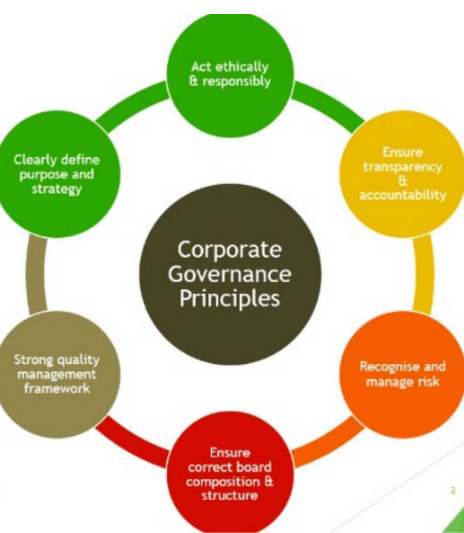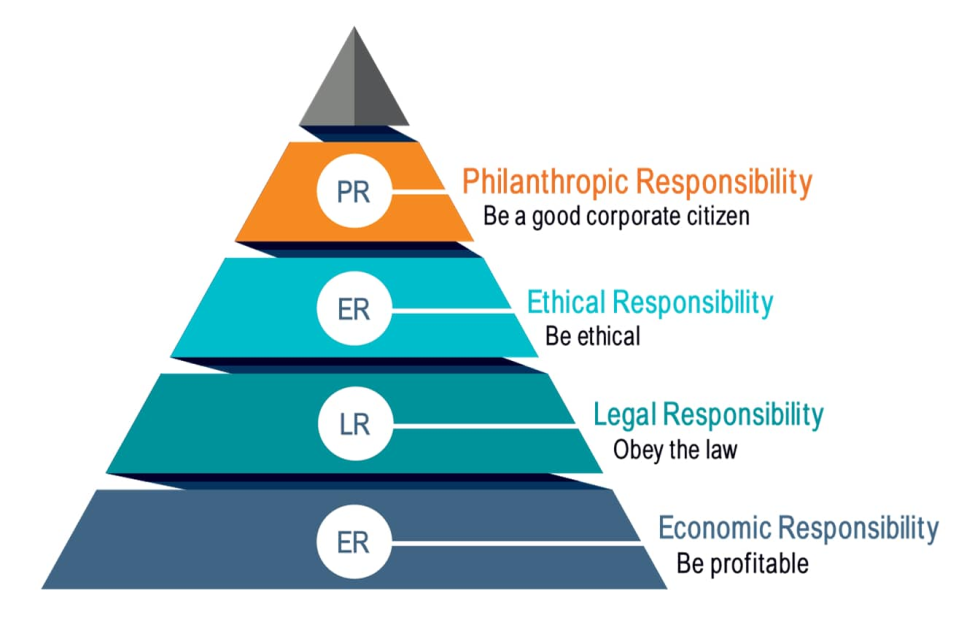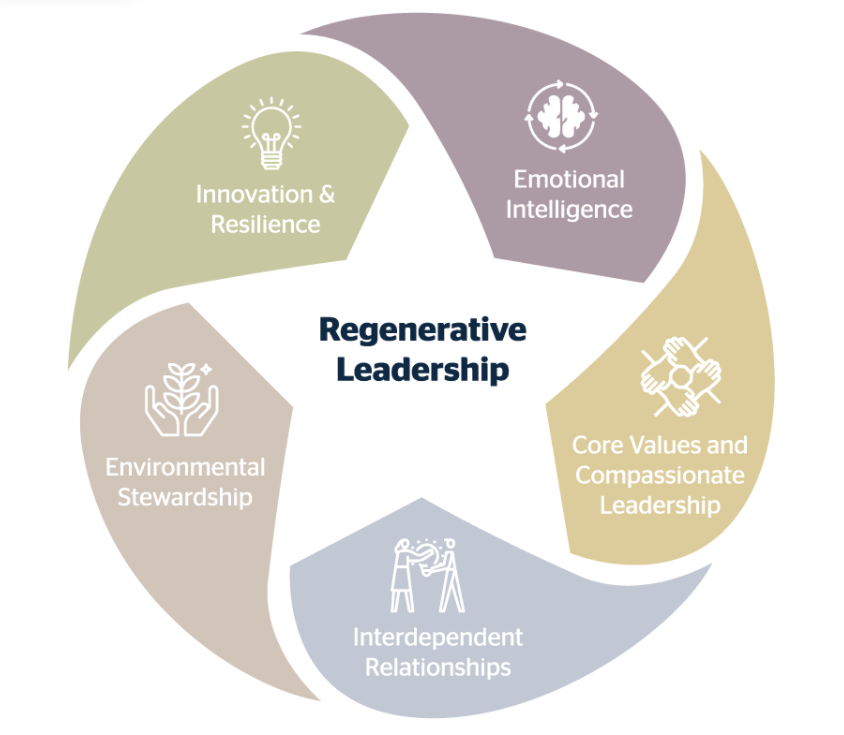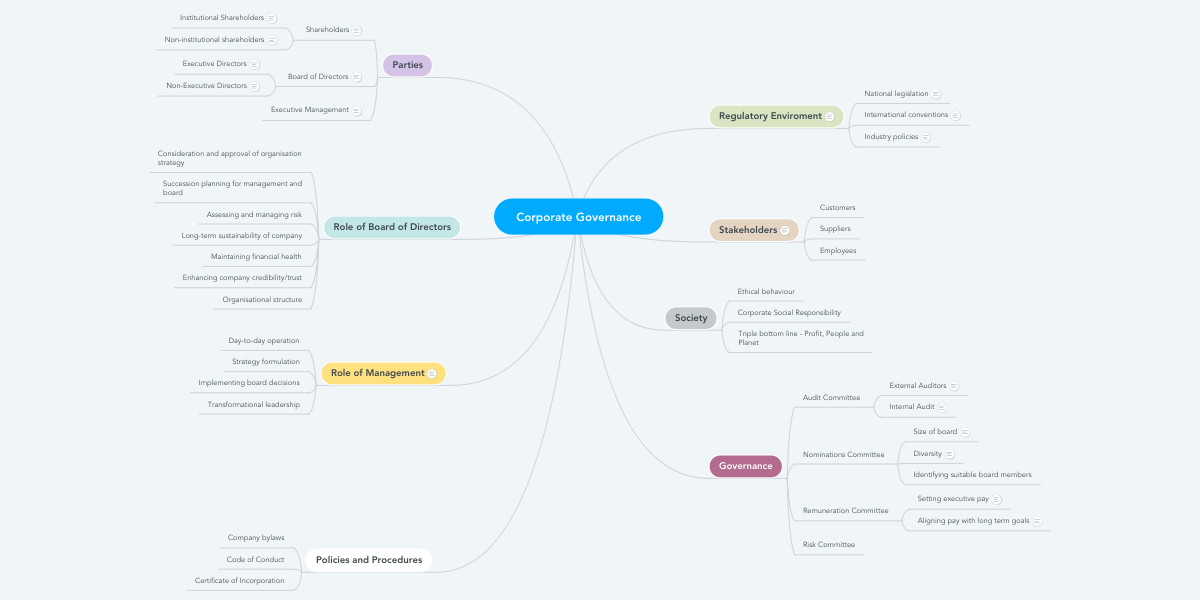BSS064-6 Leading and Managing Organisational Resources Assignment Sample
Module code and Title: BSS064-6 Leading and Managing Organisational Resources Assignment Sample
To
Management of Google
From
Thomas Weber
Subject line: Analysis of corporate governance for financial and ethical decision-making and sustainable leadership development for balancing the stakeholder interest.
Introduction and purpose of the mail
This mail is for the management of Google regarding the issues in corporate governance and sustainable leadership development to recognise it and develop excellent corporate governance and develop sustainable leadership to achieve long-term success through improved performance. Scherer and Voegtlin, (2020) stated that corporate governance of the organisation influences the innovations for organisational positivity and to avoid harm and effectively become sustainable.
Google is the top most technology company that is witnessing the issues of decision-making through corporate governance in terms of financial, operational and ethical means which are hindering organisational sustainability. Apart from that, the development of sustainable leadership is also crucial for the company to become more productive through employee mobilisation and optimal use of resources. Armani et al., (2020) mentioned that interpersonal skills, orientation towards change, focus on sustainability, business vision and alignment of sustainability with organisational values, principles and culture are the prime attributes of sustainable leadership.
These attributes are interdependent and interrelated to each other which enabled the leadership to opt for sustainability and led the change for better organisational responsiveness. Sharma, (2019) admitted that cascading effects of globalisation, rapid change in business environments, technological emergence, economic uncertainties and increased stress levels in employees required sustainable leadership.
Analysing the corporate governance
Corporate governance is responsible for building an organisational working environment trustful, transparent and accountable to prosper through long-term investment, and business integrity to foster stronger growth and inclusive societies. Pekovic and Vogt, (2021) demonstrated that the size of the board, the board’s gender diversity, independence and ownership concentration largely mediated the decision-making on the financial performance of the organisation.
Finance
Finance and investment are the backbones of any organisation which encompasses board and employees’ salaries, asset management, investment in innovation and maintaining the business liquidity. Google has stable financial outcomes which need to be analysed on behalf of the corporate governance for taking effective decisions to pave the investment in operational activity, remuneration to board and employees, asset management and acquisitions activity for stakeholders’ interest.
Moreover, financial decisions have an impact on all kinds of organisational activity such as management strategies, production and marketing where business policies critically assess the financial risks, profit, return and cost for organisational resilience and financial strength. Zhengchao and Dongni, (2021) pointed out that financing constraints largely affect the industrial development in the software and information service industry which is prominent to promote high-quality economic development.
Google has to ensure the transparency and accountability of the board of directors effectively for better financial decision-making and confidently avoid corruption and scandals in financial management through corporate governance for better stakeholder management practice. Klychova et al., (2021) depicted that indicator of assessment by the accounting and management apparatus in measuring the financial efficiency of the organisation and actively monitoring the liquidity of financial resources.
Responsible financing in Google is highly maintained and measured by the board of directors with effective decision-making on organisational running costs and financial relationships which led to market profitability through cost-effectiveness and satisfaction of the different stakeholders. Furthermore, the corporate governance of Google has the responsibility of decisions, actions and organisational behaviour for effectively managing and mitigating the risks, ensuring correct board composition and organisational structure, quality management, and defining purpose and strategy.
The stakeholder theory of corporate governance emphasised the effect of corporate activity on all the stakeholders taking into consideration the stakeholder’s interest by the corporate managers in the governance process (Referred to Appendix 1). Bhagat and Bolton, (2019) asserted that stock ownership of directors positively mediated the consistency in achieving future corporate performance through good corporate governance.
Ethics
Ethics is the most significant term in corporate governance where Google has to champion ethical issues and perspectives in the business environment to gain a high reputation and employee satisfaction in day-to-day activities. The ethical dilemma in Google regarding corporate governance may be entangled with fraudulent activities, the high gap in executive pay and employee pay scale and possible exploitation of resources which are dominantly dependent on the decisions taken through corporate governance.
Rendtorff, (2019) outlined that corporate governance and corporate citizenship are closely related to business legitimacy where the responsibilities are addressed through business ethics to successfully operate in society, making balance among the social, economic and environmental commitments. It may be argued that business ethics is fundamental to communicating and managing support from the diverse range of stakeholders in business management.
Chukwujioke, (2018) circulated that ethical scandals are common to the organisation and affected the stakeholder’s engagement in the firm while corporate governance, business ethics and corporate social responsibility are developed to cross-check the corrupt and unethical practices. Business navigation through the increasingly dynamic and diverse society sought ethical responsibility and coordination for better business outcomes through corporate governance and effective action to maintain ethical stability and avoid the possible issues of fraud, pay gap of executives and exploitation of the human resource.
Google may develop an effective remuneration policy along with an ethical code of conduct in the working environment of the organisation for better management and maintaining the ethical discourses in the organisation with increased transparency and reporting. Aluchna and Kuszewski, (2021) described that the code of conduct of corporate governance is based on the fundamental norms of justice, equality and fairness and is liable to enhance the accountability of the company to the shareholders through improved corporate governance.
 Figure 1: Corporate governance principles (Source: Aluchna and Kuszewski, 2021)
Figure 1: Corporate governance principles (Source: Aluchna and Kuszewski, 2021)
Sustainability
Sustainability is the prime focus for business organisations and google is not out of the list to seek organisational sustainability in all aspects ranging from environmental, economic and social parameters to achieve business resilience through coping with each aspect of sustainability. The triple bottom line theory is adequate to address the corporate governance over sustainability in Google through measuring the environmental and social impact along with the economic impact which helped in the creation of greater business value.
Tseng et al., (2020) demonstrated ways to improve economic growth along with reducing the environmental and social impact of business to develop organisational sustainability. More on that Corporate Social Responsibility (CSR) is to develop a more integrated interaction with the stakeholders and develop it strategically to attract the attention of society, communities, and investors through corporate governance for increased brand reputation and close engagement of the stakeholders.
CSR positively improves the organisational profitability and value to the society and environment of the organisation and builds public trust and influences the positive relationships for business sustainability. Working conditions, corruption, human rights, gender equality, occupational integration, tax liability and consumer interests are the increasing issues in CSR. Purbawangsa et al., (2019) reflected that
Corporate profitability and corporate governance have significantly led the CSR disclosure which influences the organisational value and commitment.
 Figure 2: CSR pyramid (Source: Purbawangsa et al., 2019)
Figure 2: CSR pyramid (Source: Purbawangsa et al., 2019)
Leadership development
Traditional perspectives
There are many traditional theories related to the leadership approach such as the trait approach, behavioural approach, and contingency approach and so on. Google has also followed traditional leadership styles in the initial stage because it helps to boost the growth and development of the company among the high competition. According to the trait style of leadership, the leaders are born instead of made and these leaders possess integrity, dominance, confidence, personality, weight, appearance and so on.
Traits of a person influence the leadership outcomes and contingencies of a leader depending on different factors such as task characteristics, organisational contexts and follower characteristics (Wyatt and Silvester, 2018). Along with that, the behavioural approach is another popular approach and there are two categories of behaviour such as consideration as well as initiating structure.
Apart from that, there is another traditional approach which is the contingency approach as well as the situational approach and it provides great support to the company such as Google with a desirable leadership style according to the situation. Harrison, (2018) articulated in the research that the behavioural approach is concerned with the behaviour of the leaders whereas the contingency theory focuses on the context of the leadership in an effective manner.
There are different characteristics in the leaders that need attention, such as the classical theory that there are born leaders and these leaders are such as holding inborn natural traits. This is the trait theory of leadership, which mentions that conscientiousness as a trait prevails over leadership and thus personality assessment is thus so complex (Wyatt and Silvester, 2018).
It may be further known to the leaders that leading a team, as may be said for an advanced institute such as Google, the leadership needs to get out of the traditional perspective and focus on contemporary leadership. Unlike this, there is a completely different leadership theory that follows the system of leadership being imitated, or such traits that may be artificially created, known as behavioural leadership.
Regenerative leadership
Regenerative leadership refers to the process of leading which helps to cultivate life-affirming conditions whereas it helps to regenerate the leadership within an organisation. A regenerative leadership style may provide an extensive range of support to assess the possible opportunities to build an economy that is life-asserting and it helps to balance natural resources. Regenerative leadership focuses on the mission and purpose rather than profit whereas it also helps to bring flexibility within the business process.
Regenerative leadership style is comparatively the latest leadership style which comprises a holistic approach and aims to restore or preserve society, environment and people (Mark and Vangelova, 2022). On the other hand, it helps in operation management as well as financial analysis by setting aims for communication, collaboration and transparency.
In recent times sustainability has become an important factor and the regenerative style of leadership provides an opportunity for the company to run a sustainable business through social justice, planetary boundaries, and employees’ wellbeing and so on. Nowadays, the tech giant may follow the regenerative leadership style as it provides immense support to maintain sustainability or implement initiatives to protect the environment from adverse environmental effects.
 Figure 3: Regenerative leadership (Source: Mark and Vangelova, 2022)
Figure 3: Regenerative leadership (Source: Mark and Vangelova, 2022)
The emotional intelligence of the leader helps to boost the regeneration process and enhances the opportunity for systematic awareness as one factor impacts others. Drigas and Papoutsi, (2019) articulated in the research that emotional intelligence among leaders focuses on self-management as well as self-control which boosts the confidence of the employees. Google follows innovation and regenerative leadership and provides immense support to bring innovation and strategy to increase the resilience of the company.
Contemporary leadership in the technology sector
In recent times, there are some contemporary leadership approaches such as charismatic leadership, transformational leadership, and transactional leadership and so on. Transformational leaders are highly supportive of the employees as these leaders help in setting proper vision, team building and maintaining ethics or moral values. Idealised influence, inspirational motivation, individualised consideration and intellectual stimulation are the factors which enhance the scope of providing desirable guidance to subordinates. On the other hand, transactional leaders motivate the employees by exchanging rewards along with desirable feedback which also helps to improve the performance of the employees.
Kittikunchotiwut, (2019) stated in the research that leadership becomes more challenging for global leaders and transformational as well as transactional leadership styles are two contemporary leadership styles which may boost the productivity of the organisation. In the age of competition, motivation plays an important role for the employees and the charismatic style of leadership with effective communication skill influences the employees and increases the participation of them in the work process effectively. It may be stated that digital transformation focuses on talent instead of technology and for this reason, leaders may focus on soft skills such as communication, critical thinking, problem-solving and many more.
In recent times, the implementation of technology poses a real threat to companies and in contrast to that, the technologies provide effective solutions to the problem. Therefore, in companies such as Google, training programmes play an important role as it helps the company to improve the performance of the leaders. It may be argued that lack of effective leadership adversely affects the growth and development of companies such as Google because on the international stage the competition is rising day to day.
Conclusion
Finally, it may be concluded that corporate governance of the organisation is driving the organisation through decision-making, action taking and delivering organisational sustainability through managing and mitigating various risks in the business environment. Corporate governance aligned the corporate citizenship behaviour of the organisation by engaging with all the aspects of business concerns. Finance management in corporate organisations critically develops the organisational stability and responsiveness to deliver effective business in the market operation and earn a good profit (Mahrani and Soewarno, 2018).
Corporate governance by the board has the responsibility to take decisions on behalf of the organisational sustainability and promote the brand reputation where scandals in financial management negatively impacted the stakeholder’s engagement and interest. Ethics and sustainability are the other two significant aspects of corporate governance where accountability and transparency with organisational commitment for minimising fraudulent activities, pay gaps between executives and general employees and human rights violations are enabled by the corporate governance framework.
CSR policy on the other hand is an effective corporate governance policy to deal with sustainability by encompassing the society, environment and economic growth of the organisation.
Other than that leadership development also is vital to develop organisational sustainability through employee mobilisation with a clear vision of contemporary technological emergence and leading through change management and digital disruptions. Leadership traits, behaviours, communication and engagements help to motivate and drive the workforce to attain and cultivate the life-affirming conditions to regrow or restore organisational competency and employee productivity. On a specific note, Hutchins, (2019) focused on regenerative leadership which provided a consolidated and inspired path to flourish the organisation, thriving ecosystem and live the fullness of people.
Recommendations
The recommendations are as follows: –
- Google should implement frequent financial auditing and performance management of the board of directors to avoid fraud, excessive pay gap and other scandals.
- Google should implement 360-degree feedback and excessive reporting mechanisms in violation of the code of conduct and ethics for developing the appraisal system including the external partners for giving feedback to every employee including the board of directors.
- Google should implement the circular economy strategy for making the business operation green and sustainable for a thriving ecosystem along the economic growth perspectives.
- Google should adopt the cost leadership strategy for better organisational growth and sustainability through innovation and cost reduction.
References
Bhagat, S. and Bolton, B., 2019. Corporate governance and firm performance: The sequel. Journal of Corporate Finance, 58, pp.142-168.
Chukwujioke, K., 2018. Effect of ethical leadership on corporate governance, performance and social responsibility: A study of selected deposit money banks in Benue state, Nigeria. Informing Science: International Journal of Community Development & Management Studies, 2(19), pp.19-35.
Drigas, A. and Papoutsi, C., 2019. Emotional Intelligence as an Important Asset for HR in Organizations: Leaders and Employees. International Journal of Advanced Corporate Learning, 12(1).
Harrison, C., 2018. Leadership research and theory. In Leadership theory and research (pp. 15-32). Palgrave Macmillan, Cham.
Hutchins, G., 2019. Regenerative leadership. eBook Partnership.
Kittikunchotiwut, P., 2019, July. Role of transformational leadership and transactional leadership on organization innovation. In Proceedings of International Academic Conferences (No. 8710470, pp. 2-17). International Institute of Social and Economic Sciences.
Klychova, G., Zakirova, A., Ostaev, G., Sokolov, V. and Nekrasova, E., 2021. Corporate finance in the system of economic analysis management and intensification. In E3S Web of Conferences (Vol. 273, p. 10037). EDP Sciences.
Mahrani, M. and Soewarno, N., 2018. The effect of good corporate governance mechanism and corporate social responsibility on financial performance with earnings management as mediating variable. Asian Journal of Accounting Research.
Mark, V. and Vangelova, N., 2022. Contributions of Regenerative Leadership to team collaboration and Social Sustainability.
Pekovic, S. and Vogt, S., 2021. The fit between corporate social responsibility and corporate governance: the impact on a firm’s financial performance. Review of Managerial Science, 15(4), pp.1095-1125.
Purbawangsa, I.B.A., Solimun, S., Fernandes, A.A.R. and Rahayu, S.M., 2019. Corporate governance, corporate profitability toward corporate social responsibility disclosure and corporate value (comparative study in Indonesia, China and India stock exchange in 2013-2016). Social Responsibility Journal, 16(7), pp.983-999.
Rendtorff, J.D., 2019. The concept of business legitimacy: Corporate social responsibility, corporate citizenship, corporate governance as essential elements of ethical business legitimacy. In Responsibility and Governance (pp. 45-60). Springer, Singapore.
Scherer, A.G. and Voegtlin, C., 2020. Corporate governance for responsible innovation: Approaches to corporate governance and their implications for sustainable development. Academy of Management Perspectives, 34(2), pp.182-208.
Sharma, R.R., 2019. Evolving a model of sustainable leadership: An ex-post facto research. Vision, 23(2), pp.152-169.
Tseng, M.L., Chang, C.H., Lin, C.W.R., Wu, K.J., Chen, Q., Xia, L. and Xue, B., 2020. Future trends and guidance for the triple bottom line and sustainability: a data driven bibliometric analysis. Environmental Science and Pollution Research, 27(27), pp.33543-33567.
Wyatt, M. and Silvester, J., 2018. Do voters get it right? A test of the ascription-actuality trait theory of leadership with political elites. The Leadership Quarterly, 29(5), pp.609-621.
Wyatt, M. and Silvester, J., 2018. Do voters get it right? A test of the ascription-actuality trait theory of leadership with political elites. The Leadership Quarterly, 29(5), pp.609-621.
Zhengchao, Z. and Dongni, Z., 2021, February. Research on Financing Efficiency of Software and Information Technology Service Industry on GEM. In 2021 International Conference on Public Management and Intelligent Society (PMIS) (pp. 242-245). IEEE.
Appendices
Appendix 1
Know more about UniqueSubmission’s other writing services:

